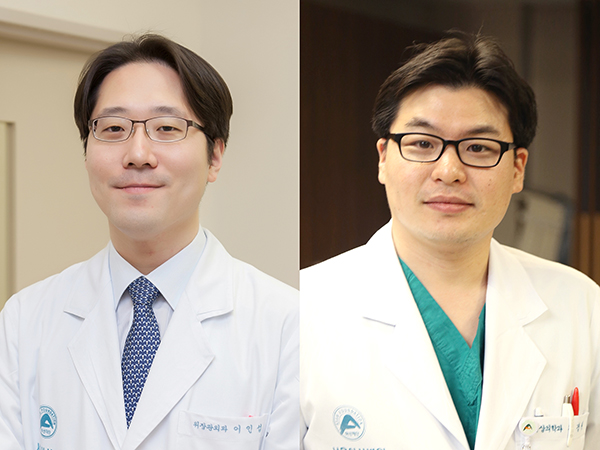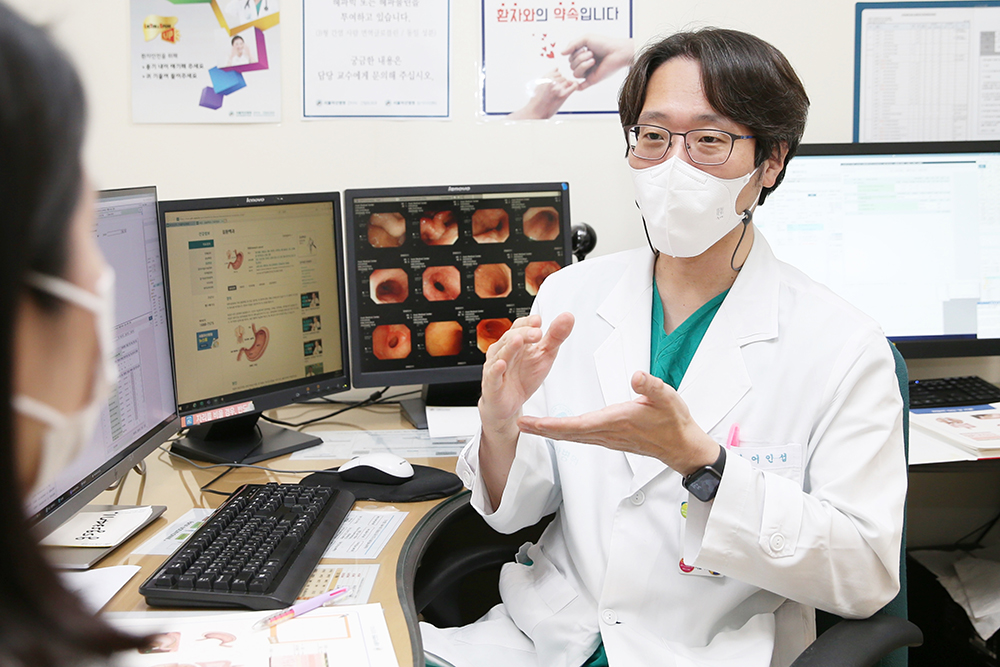RELATED Live.
- About us
- KIMA Members
-
KIMA Doctors
- All
- Anesthesiology
- artificial joint center
- Breast and Endocrine Surgery
- Breast cancer and thyroid cancer center
- Breast Surgery
- Cardiology
- Cardiothoracic Surgery
- Cerebrovascular Center
- Colorectal Surgery
- dental and maxillofacial surgery
- Dermatology
- Endocrinology
- Gastroenterology
- General Surgery
- Genito-Urology
- Hematology
- Hemato-oncology
- Infection Center
- Internal Medicine
- International Healthcare Center
- Korean Medicine
- liver center/Pancreas and billiary tract center
- Liver Transplantation
- Neurology
- Neurosurgery
- Obstetrics & Gynecology
- Ophthalmology
- Orthopedic
- Otorhinolaryngology
- Pediatric & Juvenile
- Pediatric Allergy and Respiratory Diseases
- Pediatric Gastroenterology
- Pediatric Neurology
- Pediatrics
- Physical Medicine & Rehabilitation
- Plastic & Reconstructive Surgery
- plastic surgery
- Pulmonology
- Radiation oncology
- Rheumatology
- Thyroid & Endocrine Surgery
- Urology
- Vascular Surgery
- KIMA News
- KIMA Live
- Community
KIMA NEWS
Changes in body weight, muscle mass, fat mass, and nutritional status one year after surgery are important factors influencing surgical outcomes
Machine learning using large amounts of data such as the cancer staging system and health conditions of 4,000 individuals achieved 80% accuracy
The Asan Medical Center (AMC) research team says that “Strength training, a high-protein diet, etc. that patients can adjust themselves are important in boosting the survival rate”

Despite the growing emphasis on personalized treatment for cancer patients worldwide, there has been a lack of research on factors affecting treatment outcomes, other than the staging system, when it comes to gastric cancer.
Recently, a study was published on an artificial intelligence (AI) model that can calculate the chance of survival five years after gastric surgery by taking into account the progression of the cancer based on the staging system as well as the patient’s health condition one year after surgery. Data analysis showed that exercise and diet, which the patient can control and adjust on his or her own after surgery, had a significant impact on long-term survival.
A team led by Dr. Lee In-seop, a professor of gastrointestinal surgery, and Dr. Kim Kyung-won, a professor of radiology at Asan Medical Center, recently announced that they had successfully developed an AI algorithm that can predict the chance of survival five years after gastric cancer surgery based on the treatment results and health conditions of 4,000 patients one year after surgery with about 80% accuracy.
The research team confirmed that in addition to surgery and chemotherapy, changes in the patient's body weight, muscle mass, fat mass, and nutritional status a year after gastric cancer surgery had a significant effect on the chance of survival.
Unlike other cancers, there were no established factors for predicting the chance of survival five years after surgery aside from the stage of the tumor in the case of stomach cancer. Scorecards, measurement charts, and AI, among others, have been studied to predict the chance of survival, but such tools have rarely been applied in clinical settings. In this study, however, the research team identified factors that affect gastric cancer treatment results and analyzed the data on more than 4,000 patients so that the AI algorithm developed as a result could be used in practice.

The research team led by Dr. Lee and Dr. Kim at the AMC had the AI model learn 65 types of data on 3,220 patients who underwent gastric cancer surgery at the hospital from 2003 to 2012, including pre-op health information, surgery, chemotherapy, and pathology information, as well as blood test results and CT scans conducted as follow-up to check for recurrence.
Data from gastric cancer patients obtained one year after surgery were used to develop the AI algorithm. Death within one year after surgery is often due to the aggressiveness of the cancer, and stage 2 and 3 gastric cancer requires adjuvant chemotherapy for six months to one year after surgery, so the research team judged that the patient’s condition a year after surgery would be important in determining long-term survival.
After the research team created an AI algorithm and evaluated its internal validity using the data on 805 patients, it was found that the accuracy of predicting the chance of survival five years after gastric cancer surgery was about 76%.
Moreover, as a result of verifying the external validity of the AI algorithm with the data on 590 patients who had undergone gastric cancer surgery from 2010 to 2012 at Ajou University Hospital, it was found that the chance of survival five years after gastric cancer surgery can be predicted with an accuracy of about 81%.
Furthermore, an analysis of 65 types of data on patients showed that changes in body weight, muscle mass, fat mass, and nutritional status were important factors in predicting the chance of survival five years after surgery, and undesirable trends in relation to these factors, such as weight and muscle loss and an increase in fat mass and nutritional risk index (NRI) reduced the chance of survival.
Dr. Lee said, “This study is meaningful in that it has not only enabled us to predict the long-term outcomes of gastric cancer surgery based on big data analysis but also revealed how factors that patients who have undergone gastric cancer surgery can control on their own, such as performing strength training on a regular basis and opting for a high-protein diet, affect long-term survival.” He added, “It has been objectively proven that surgery and chemotherapy are not the be-all and end-all and that individual management and efforts on the part of the patient are also important.”
“In this study, we analyzed the amount of abdominal muscles, subcutaneous fat, and visceral fat of patients using an AI-based abdominal computed tomography (CT) analysis program that we developed ourselves,” said Dr. Kim. He added, “Most treatment outcome prediction models have a limitation in that their predictions were not verified with an external patient group, but this study was conducted based on internal data on more than 4,000 patients and external data on about 600 patients, so the reliability of the study is high.”
This study was recently published in the Journal of Cachexia, Sarcopenia and Muscle (IF=12.063), one of the leading international journals in the field of geriatric medicine.
With the recent publication, Dr. Lee and Dr. Kim at AMC were registered in Hanbitsa (People Who Brought Glory to Korea) by the Biological Research Information Center for having published at least three papers in an academic journal with an IF of at least 10 in the past three years.
Inquiry